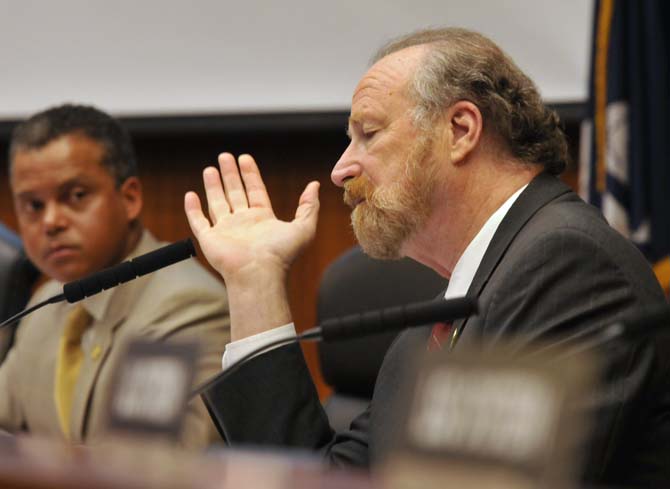As part of a push to bring tuition authority back to higher education management boards, the Board of Regents took preliminary steps Wednesday to confirm whether tuition increases are subject to approval by two-thirds vote of the legislature.
The Regents will be filing a bill that would return tuition-setting authority to the management boards, allow for differential tuition for high-cost programs and give institutions the power to charge a per-credit hour tuition rate. The per-credit portion will not affect TOPS students, said the Board’s General Counsel Uma Subramanian.
Tuition proposed by a higher education’s management board must not exceed the Southern Regional Education Board’s average. The Regents would set the tuition policy.
Prior to 1995, the management boards of higher education institutions had tuition control. The 1995 constitutional amendment stated “any new fee or an increase in an existing fee shall be subject to approval by the legislature by two-thirds vote of each chamber,” Subramanian said.
The Attorney General said soon after that tuition is a fee “within the meaning of the Constitution,” but it’s just an opinion. There has never been a law that said it, according to Subramanian.
The counsel will consult with the management boards and others to see if seeking a court order is a viable option before going forward with a petition for declaratory judgment, said Regents member and legislative committee chair Robert Levy.
“If the tuition bill goes to the legislature, we’ll just keep our track [to the judiciary] going because these things take time. If the legislature did, in my opinion, do the right thing, there’s no need for this,” said Board of Regents Chairman W. Clinton Rasberry. “It’s our obligation to try to do anything we can to get Bill Jenkins and President Alexander to be in control of their own destiny, not at the behest of two-thirds of the legislature.”
Subramanian said all they’ve been asked to do right now is to explore the options and get back to the Board.
Interim System President and Chancellor William “Bill” Jenkins said they are obligated to at least explore the option.
“An attorney general’s opinion is just that – an opinion. We need to validate if the attorney general’s opinion was correct. We’re obligated to at least look at that, examine it and test it,” Jenkins said.
Commissioner of Higher Education Jim Purcell said they would talk to the system attorneys and decide if they want to go in that direction.
“We certainly want to make sure that we do whatever the law requires,” Purcell said. “Any approach to help the institutions, we’ll look at. It was not necessarily the intent of that legislation to have tuition a part of [the amendment]. The interpretation was that it should be included.”
Rasberry said the need for tuition flexibility has never been this critical.
“There is no other place for our institutions to go for support. There is no state general fund revenue,” he said. “The times are really difficult. This isn’t a time for grandstanding. The legislative control over this is the only one in the country. The presumption is they know more about higher education than higher education.”
“There is no other place for our institutions to go for support. There is no state general fund revenue.”










